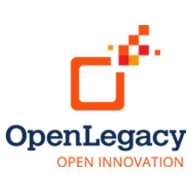

MuleSoft API Manager and OpenLegacy compete in the API integration category, with MuleSoft API Manager having a pricing and support advantage, while OpenLegacy is preferred for its strong features prioritizing functionality.
Features: MuleSoft API Manager includes comprehensive lifecycle management, robust analytics, and security features suitable for diverse environments. OpenLegacy is strong in leveraging legacy systems for smooth integrations and rapid deployment. MuleSoft provides versatility for different setups and environments.
Room for Improvement: MuleSoft may involve a steeper learning curve and require additional customization efforts. Its broader support might complicate simple integration needs. OpenLegacy might enhance its offerings with advanced analytics, improved customization options, and expanded documentation resources.
Ease of Deployment and Customer Service: OpenLegacy offers a straightforward deployment model ideal for complex legacy architectures, and its customer service is responsive. MuleSoft supports diverse systems but might have a steeper learning curve, yet offers extensive resources fitting varied organizational needs.
Pricing and ROI: MuleSoft API Manager generally requires a higher initial investment potentially affecting ROI but justifying costs through extensive features. OpenLegacy tends to offer a more cost-effective initial setup with quicker ROI by simplifying legacy integrations, appealing to companies aiming for modernization without high upfront costs.
| Product | Market Share (%) |
|---|---|
| MuleSoft API Manager | 5.0% |
| OpenLegacy | 0.5% |
| Other | 94.5% |

| Company Size | Count |
|---|---|
| Small Business | 16 |
| Midsize Enterprise | 5 |
| Large Enterprise | 43 |
Mulesoft API Manager is the portion of the Anypoint Platform that is used for the designing, building, managing, and publishing of APIs. Anypoint Platform uses Mule as its core runtime engine.
Mulesoft API Manager is an extremely versatile solution. It offers users the ability to deploy their APIs in a number of different settings. You can use API Manager on a public cloud, a private cloud, or a hybrid. Additionally, users can use the solution to manage their deployments with ease. A few clicks are all you need to alter your deployment.
Benefits of Mulesoft API Manager
Some of the benefits of using Mulesoft API Manager include:
Reviews from Real Users
Mulesoft API Manager is a highly effective piece of software whose purpose is to enable users to design, build, manage, and publish APIs. It stands out among its competitors for a number of reasons. Two major ones are the ease with which users can connect it to their applications and the high level of value that its support offers. It provides users with the ability to easily connect this solution with whatever program they need to join it with. Users can create connections without having to write code. It offers different types of support which ensure that users have a high level of understanding about the product and how to use it.
PeerSpot user Tolulope A., a technical lead specializing in integration and middleware at a financial services firm, notes the ease with which users can connect Mulesoft API Manager to their applications. He writes, “One good thing about MuleSoft is that they have a lot of connectors to those back-end applications. We don't really need to write code to be able to connect to a database or to connect with SAP. You just need credentials and the connectivity details. Most of the development of what we do is just drag and drop. They're able to connect with applications using standard connectors that are provided by ESB, by MuleSoft.”
The CEO & Co-Founder at a computer retailer notes the value of Mulesoft’s supporting documentation. They write, “The documentation is great; it is always up-to-date and well-presented. If any details are missing, then there is a blog available that contains a lot of details. There are also channels on YouTube to help you better understand the solution and what some of the processes look like.”
OpenLegacy helps organizations quickly launch innovative digital services by extending their core back-end systems to the web, mobile and cloud in days or weeks versus months. Our microservice-enabled API integration and management software quickly reduces project backlog by automating and accelerating microservices and API creation, deployment, testing and management from core applications, mainframes and databases. Together, business and IT teams can quickly, easily and securely meet consumer, partner or employee demands for digital services without modernizing or replacing core systems, and without special programming skills or invasive changes to existing systems and architectures. OpenLegacy is designed for ongoing management of microservices APIs and is based on open standards, so our software plays nice with your current technology stack and supports agile, DevOps and continuous development. Learn why leading companies choose OpenLegacy at www.openlegacy.com.
We monitor all API Management reviews to prevent fraudulent reviews and keep review quality high. We do not post reviews by company employees or direct competitors. We validate each review for authenticity via cross-reference with LinkedIn, and personal follow-up with the reviewer when necessary.